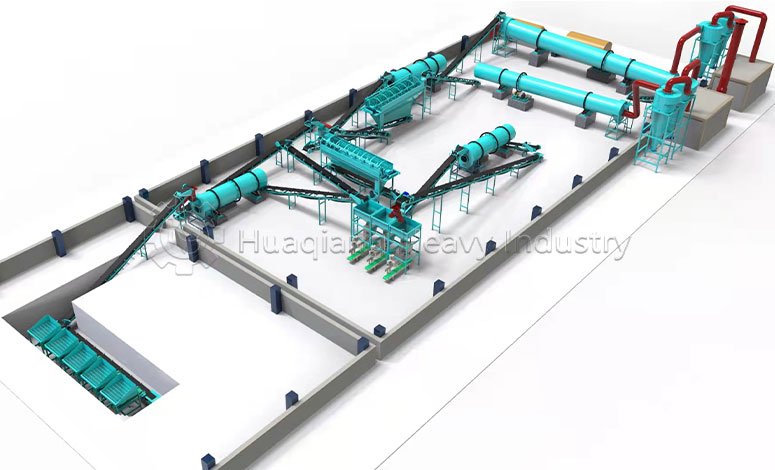The benefits of investing in an organic fertilizer production line for cow dung waste
Investing in a dedicated cow dung organic fertilizer production line isn’t just the key to solving an environmental challenge. It transforms a troublesome waste product into highly sought-after commercial organic fertilizer, delivering a triple win: environmental, economic, and social benefits.
Creating Economic Value
1.Lower Farming Costs:Using self-produced organic fertilizer on the ranch’s own fields, pastures, or feed crops significantly cuts down on chemical fertilizer purchases. It improves soil health, boosts crop yield and quality, creates a “crop-livestock integration” circular farming system, and enhances the overall competitiveness of the operation.
2.Diversify Income Streams:Beyond selling the finished organic fertilizer, you can also explore niche markets like custom blends, functional bio-organic fertilizers, and horticultural fertilizers to command higher prices.
Large-Scale Processing Power
1.High Daily Capacity:Modern production lines can easily handle dozens to hundreds of tons of fresh manure daily, far surpassing traditional composting methods. This meets the concentrated, massive manure treatment needs of large cattle farms.
2.Slash Labor Costs:Automation and machinery (like solid-liquid separators, turners,fertilizer granulators, and bagging machines) replace over 90% of strenuous manual labor, drastically reducing reliance on manpower and management costs.
High-Quality Fertilizer
1.Thorough Sanitization:High-temperature aerobic fermentation (65-75°C) kills off pathogens, parasite eggs, and weed seeds, ensuring the fertilizer is safe to use.
2.Nutrient Activation and Preservation:Scientific processes minimize the loss of nutrients like nitrogen. The fertilizer is rich in organic matter, humic acid, and trace elements, significantly improving soil structure, boosting water and nutrient retention, and stimulating crop growth.
Setting up a cow dung organic fertilizer production line requires an initial investment mainly in equipment and facilities. Combined with the stable growth of the organic fertilizer market and strong policy support, this represents a smart investment choice – one that offers both social value and economic resilience.
